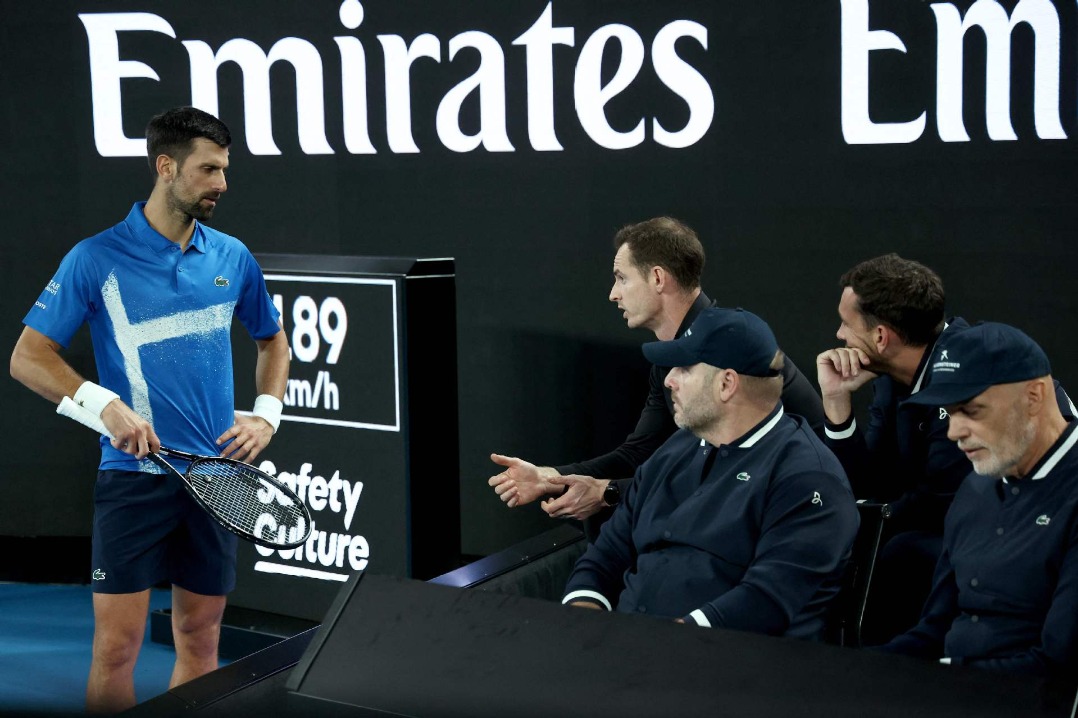Transgender BMXer riding high as historic appearance beckons

When American BMX Freestyle rider Chelsea Wolfe received an email asking her to register for the Tokyo Olympics this month, it took her one step closer to her dream of making history as the first transgender athlete to compete in the Games.
Wolfe, one of the first openly trans people to receive such an invitation, still has to be selected by the US Olympic Committee based on her performance in the Union Cycliste Internationale (UCI) World Cup in April.
If she succeeds, she will find herself at the center of a fierce row over whether trans women have an unfair advantage in sport-a question the International Olympic Committee (IOC) and other sports bodies are still grappling with.
For her, as well as career success, it would bring the chance to be a role model for other kids struggling with their gender identity.
"I would be getting to be the person that I needed to see when I was younger, which is-I mean that would be so important to me," Wolfe, 26, told the Thomson Reuters Foundation by phone.
"To get to inspire kids to realize...that if they want it enough, they can earn it, and they're not going to be stopped because of who they are."
Born and raised in West Palm Beach, Florida, Wolfe began racing competitively when she was just 6, spending her evenings riding around her local skate park.
When she turned 15, she traded in her regular bicycle for a trick bike and started riding freestyle. For many years, she competed with male athletes, hiding her identity as a trans woman.
"I had this fear that if anyone knew that I existed, even some of my idols ... I was scared that they would reject my existence," she said.
When she came out in 2014, Wolfe said most of her fellow riders welcomed her, though some tried to undermine her, viewing her biological sex as an unfair advantage.
"I have to laugh about that," she said. "What's annoying about it is that no matter how hard you work as a trans athlete, people are still going to say, 'Oh, you have your accomplishments because you're trans'."
The inclusion of trans athletes in elite women's sport has become a subject of huge controversy, with critics arguing that being born male provides a physical advantage even after transition.
Hormone levels
Officially under IOC guidelines, male-to-female trans athletes have been allowed to compete in the Olympics since 2016 if their testosterone levels remain low enough for a year.
Asked about the policy, the IOC told the Thomson Reuters Foundation it was up to international sports federations to decide eligibility rules.
Requirements issued this month by cycling's UCI require transgender women to keep their testosterone levels below a certain level for 12 months and sign a declaration that their gender identity is female.
Transgender athletes are not required to gain legal recognition of their gender identity nor undergo anatomical surgery to be eligible to compete. However, many leading sportswomen have condemned their inclusion, arguing that they have greater muscle mass, bone strength and lung capacity.
Other contenders to be the first trans Olympian include the New Zealand weightlifter Laurel Hubbard, whose gold-medal-winning performance at last year's Pacific Games ignited fierce debate.
US marathon runner Megan Youngren and Brazilian volleyball player Tifanny Abreu are also in the running for the Tokyo Games, according to Athlete Ally, an LGBT+athletics advocacy group.
In the United States, the debate over trans athletes has focused on school sports, with at least five states considering laws that would restrict children to competing in leagues that align with their biological sex at birth.
Wolfe criticized such moves as "sickening", accusing conservative US lawmakers of trying to "stop elite trans athletes from existing in the first place by preventing us from getting into sports at all".
Wolfe trains most days, for three hours on average, fitting it in around her job at a grocery store.
She has one more major competition in Hiroshima, Japan, this April before the USOC decides who it will send to the Olympics for Team USA.
"My goal is to get as far as I can go," said Wolfe. "And if that means gold at the Olympics, then cool. But if not, I'm proud of everything I've accomplished along the way."
AP Via Xinhua
Most Popular
- Comeback win sends China's Wang Yafan through to Australian Open second round
- Coaching 'pods' get mixed reaction
- Medvedev might skip the video-game celebration if he wins
- Sinner kicks off title defense
- Amorim sees shoots of progress
- Napoli sees off Verona to move 4 points clear































